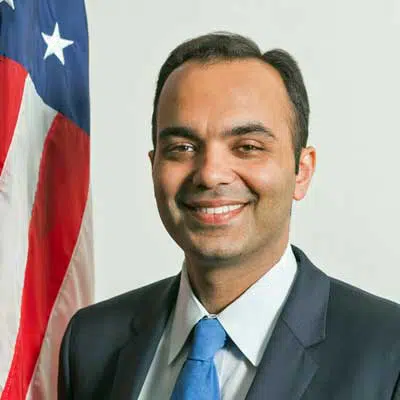Payments observers are expecting a tougher regulatory approach from the Consumer Financial Protection Bureau with the confirmation on Thursday of Rohit Chopra as executive director of the 10-year old federal agency. “The agency will likely return to the days of director Cordray,” predicts one close observer who asked not to be named. Richard Cordray served as the CFPB’s first director before stepping down in 2017. His aggressive enforcement approach came in for frequent criticism from the financial-services industry.
“The consumer financial-services and payments industries are in for a rough patch,” adds Eric Grover, principal at Minden, Nev.-based payments consultancy Intrepid Ventures.
Indeed, the 39-year-old Chopra, who was confirmed by the Senate on a 50-48 party-line vote with Democrats lining up behind him, is considered a stringent critic of financial-services firms’ practices. In a previous stint at the CFPB as an assistant director, he was particularly concerned with the practices of lenders financing student loans. In 2018, he joined the Federal Trade Commission as a Democratic appointee to one of five commissioner seats. At the CFPB, he now succeeds acting director David Uejio, who took over the bureau in January upon the resignation of Kathy Kraninger, who had been appointed by former President Donald Trump in 2018.

Chopra is widely seen by Democratic legislators as a strong advocate for consumers and a keen defender of working families. Republicans fear he will return the CFPB to what they saw as its readiness during Cordray’s directorship to act beyond the limits of the bureau’s legislated powers, a view shared by payments observers like Grover. “Chopra’s likely to make policy by enforcement and to take an expansive and lawless view of the agency’s authority,” he says in an email message.
Grover points to the payments industry’s growing interest in cryptocurrencies as an example of how the CFPB might now approach a fast-developing trend. “Chopra’s evinced keen interest in regulating cryptocurrencies, in spite of securities and commodities being outside the CFPB’s legal purview,” he says.
The CFPB’s major thrust into payments is a rule governing prepaid products. The 1,600-page regulation, which had been in the works for years, became final in 2019 and extended beyond prepaid cards to other products, including in some cases digital wallets. That same year, PayPal Holdings Inc. sued the bureau over the agency’s definition of PayPal’s wallets as prepaid products. A federal district judge in December issued a ruling favoring PayPal, but the implications of the case are likely to take time to play out, observers say.
Now, the agency under Chopra will have to play catch-up with a fast-changing payments industry, observers say. “The industry has changed tremendously since Cordray was in office,” notes the observer who asked not to be named. Still, with the CFPB under Chopra, he doesn’t doubt “there will be a return to very aggressive regulating.”





